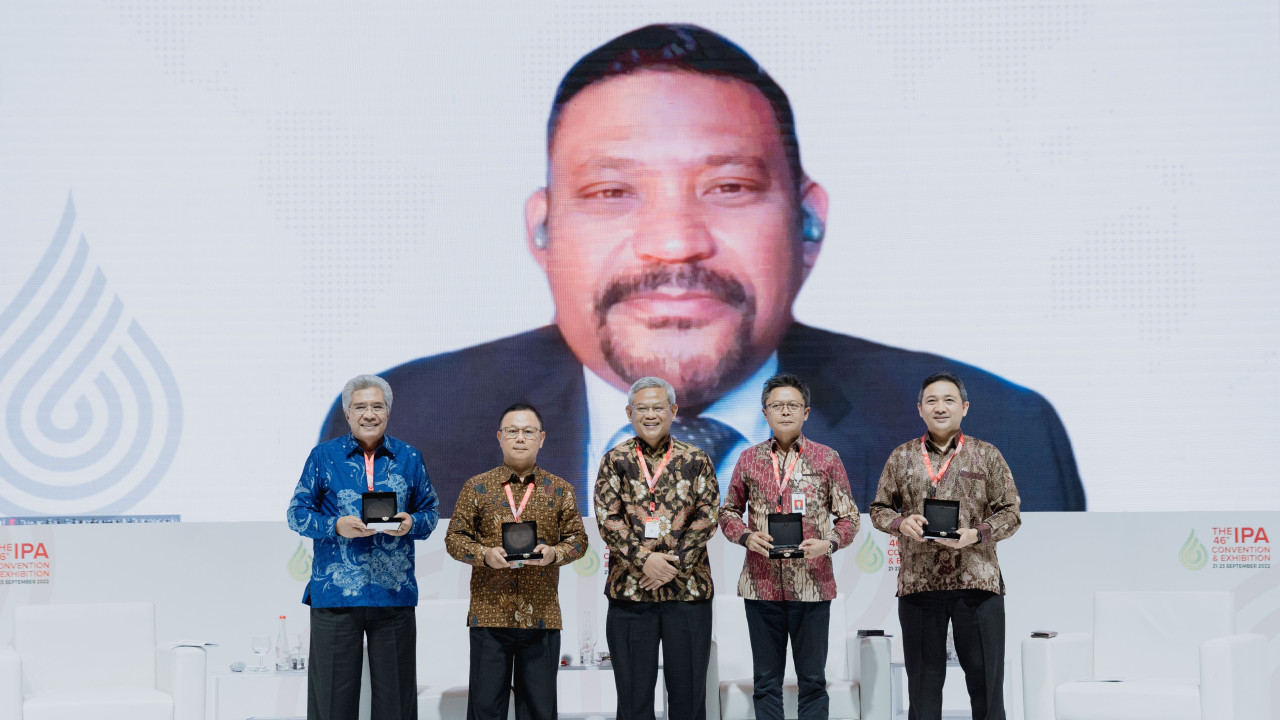Lean SCM Implementation Supports the Achievement of Oil and Gas Production Targets
Simplification of supply chain management or also known as Lean Supply Chain Management (SCM) is also the key to achieving oil and gas production targets. This is because the oil and gas production process require support from other supporting sectors. Moreover, currently the upstream oil and gas sectors are facing a double challenge, such as pursuing production targets as well as reducing greenhouse gas emissions.
This became the focus of discussion in the Special Talk 2 session themed "Lean SCM Addressing the Dual Challenge: Meeting Indonesia's Energy Needs while Mitigating the Risks of Climate Change" on the second day of the 46th IPA Convention & Exhibition, Thursday 22 September 2022.
The importance of Lean SCM was stated by the Head of the Procurement Management Division of SKK Migas, Widi Santuso. He said that this simplification is the result of an evaluation on the supply chain management cycle, in which the steps causing inefficiency were eliminated.
Based on SKK Migas data, the efficiency of procurement of goods and services for the upstream oil and gas sectors until October 2020 reached US$ 346 million. This efficiency comes from four main upstream oil and gas activities, including drilling, shipping and transportation, EPCI (Engineering, Procurement, Construction & Installation) construction, and production facility maintenance.
In its implementation, Lean SCM requires adjustments from stakeholders, both from the government as the policy maker, as well as from oil and gas companies. Related to this, Widi stated that there are three important aspects in implementing Lean SCM in Indonesia, namely regulation, technology, and culture.
"Of course, we monitor the situation and relevant regulations day to day. In the context of facing 2030 (to achieve production targets and net zero), we are trying to propose changes," said Widi.
Some of the changes initiated by SKK Migas include increasing engagement with SKK Migas and other stakeholders in designing the rules of the game, encouraging policy flexibility, setting oil and gas price formulas, standardizing technical rules, as well as trying to improve the competitiveness of Indonesian investment in the eyes of investors.
"To attract business actors, we will provide a long-term contract, and it is being regulated," said Widi.
Adding Widi’s explanation, Vice President of SCM and Business Support of Petronas Indonesia, Hendrayana Halim, explained that there are three things that become the reference for Petronas in implementing Lean SCM, namely standardization, digitalization, and sustainability.
Aspects of standardization include determining business requirements to wellhead design standards such as determining the standard depth of certain wells in exploration. Hendrayana stated that this has been practiced by Petronas in Mexico, Suriname, and Brazil.
Regarding digitization, since 2015 Petronas has developed PePS (Petronas e-Procurement System) which is a digital format of the rules for the procurement of goods and services. Another digitization is the development of an integrated catalog system and the digitization of invoicing.
Meanwhile, for sustainability, Petronas is guided by the SDGs, which are in line with the principles of corporate social responsibility (CSR), equal employment opportunities, waste reduction, and climate risk assessment.
“The benefits we can get are in terms of manpower, cost, and time. Besides that, we also contribute to the environment,” explained Hendrayana.
In line with Widi and Hendrayana, Director of Industry of Guspenmigas, Willem Siahaya, stated that the implementation of Lean SCM needs to prioritize aspects of quality and competition in order to produce the best quality of goods and services to support the activities of the upstream oil and gas sector.
“Lean SCM focuses on competitiveness and quality, then productivity and targets. We put other things behind. Another focus is continuous improvement and the implementation of continuous efforts,” said Willem.


